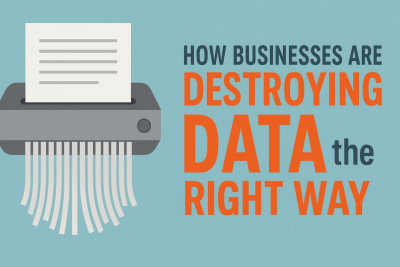Tips and Tricks for Making the Most of Paper Shredding Events
-
Paper shredding events are an excellent way to safely dispose of sensitive documents while contributing to a cleaner and more secure community. With a little preparation, you can make the most of these events and protect your personal information.
Why Paper Shredding Events Matter
Shredding events help residents reduce the risk of identity theft by securely destroying old bills, bank statements, and medical records. They also promote recycling and encourage sustainable waste management practices.
How to Prepare for Local Paper Shredding Events
Before attending, sort through your papers and separate items that contain sensitive information. Remove plastic, staples, or binders that could jam shredding machines. By organizing early, you’ll save time and make the process smooth.
Documents You Should Bring to Community Shredding Days
Bring items like tax documents older than seven years, outdated credit card offers, and old utility bills. Avoid bringing magazines, newspapers, or non-sensitive junk mail, as these can usually be recycled normally.
Tips for Efficient Drop-Off at Shredding Locations
Keep your documents in easy-to-carry boxes or paper bags. This helps volunteers and staff move them quickly through the shredding line. Labeling containers as “to shred” can also reduce confusion.
Eco-Friendly Benefits of Paper Shredding Events
Not only do these events protect your privacy, but the shredded paper is often recycled into new products. Participating helps reduce landfill waste while supporting your community’s green initiatives.
Maximizing Security at Regional Shredding Events
Check if your local event offers on-site shredding, where you can watch documents being destroyed. This provides extra peace of mind compared to drop-off services where shredding happens later.
Common Mistakes to Avoid During Shredding Days
One mistake is waiting until the last minute and bringing too much paper at once. Another is forgetting to remove non-paper items like CDs, which could damage shredding equipment. Planning ahead avoids these issues.
Making Shredding Events a Family Activity
Involving your family can turn shredding into an educational moment. Teach kids about protecting personal information and the importance of recycling. It’s a simple way to raise awareness at home.
Paper Shredding Event Guide for Residents
A helpful Paper Shredding Events Guide ensures you know what to bring, where to go, and how to prepare. Many local governments provide detailed guidelines online to make participation easy.
Finding Upcoming Shredding Events in Your City
Most towns and counties post schedules on their websites. You can also check with local banks, libraries, or community centers that frequently host these events for residents.
What to Do After a Shredding Event
Once your papers are destroyed, take a moment to update your filing system. Keep only necessary documents in clearly labeled folders, and consider switching to digital storage for future safety.
FAQs
What types of documents should I shred at community events?
Anything containing personal or financial details, like old bills, tax returns, or medical records, should be shredded.Do I need to remove staples or paper clips before shredding?
Most shredders can handle small staples, but it’s best to remove large clips, binders, or plastic covers.Are shredding events free of charge?
Many local events are free, but some may have a small fee or limit the amount you can bring.Can I watch my documents being shredded?
Yes, many events allow you to observe the shredding process for added security and peace of mind.How much paper can I bring to a shredding event?
Most events set a limit, such as two to three boxes per vehicle, to ensure everyone gets served.Are shredded papers recycled afterward?
In most cases, yes. The shredded paper is baled and sent to recycling facilities to create new paper products.
Conclusion
Paper shredding events offer a safe, eco-friendly way to protect sensitive information and declutter your home. By preparing properly, knowing what to bring, and following event guidelines, you can make the most of these opportunities while supporting your community’s security and sustainability.
